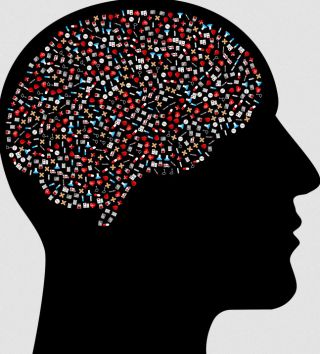Artificial Intelligence
AI Discovers Drugs That May Disrupt Biotech and Pharma
AI is revolutionizing drug discovery and accelerating precision medicine.
Posted January 17, 2023 Reviewed by Vanessa Lancaster
Key points
- Phases of U.S. drug discovery include early drug discovery and development, preclinical research, clinical research, and regulatory approval.
- Several companies have new drugs that were discovered using AI in the clinical research phase.
- Companies are seeking regulatory approval for drugs to treat Lou Gehrig’s disease, glioblastoma, and ulcerative colitis, among others.

Artificial intelligence (AI) chatbots like ChatGPT by OpenAI have brought awareness to the general public of the power of machine learning. At the same time, a quiet AI revolution in drug discovery is rapidly advancing that may impact both our mental and physical health–in a good way. Recently, a number of pioneering companies with new drug treatments discovered using AI are in the clinical trial phase.
There are currently many small-molecule drug discovery companies that were built from the start using AI technology. Now a group of these companies has new drugs in the clinical research phase. These companies include Verge Genomics, Berg, BenevolentAI, InSilico Medicine, Pharos iBio, and others.
The main phases of drug discovery in the U.S. include early drug discovery and development, preclinical research, clinical research, and regulatory approval. There are typically four phases in clinical trials per the U.S. Food and Drug Administration (FDA). In Phase I trials, a small group is tested for the treatment’s safety, determine dosage, and spot any side effects. Phase II trials are conducted with a larger group to evaluate safety and effectiveness. Phase III trials are conducted with large groups of people. The final phase, Phase IV, is done after FDA approval for use and are post-marketing studies to gain additional data on the best use of the drug, as well as the risks and benefits.
In the neurodegenerative space, a number of AI-native companies are making in-roads on new drugs. Amyotrophic lateral sclerosis (ALS), also known as Lou Gehrig’s disease, is a fatal progressive neurodegenerative disease that impacts nerve cells in the brain and spinal cord and causes loss of muscle control. Verge Genomics recently announced the Phase I clinical trial of a novel therapeutic target for ALS called VRG50635 which Converge, their AI platform, discovered. Their AI evaluated over 11.4 million data points from genetics datasets and ALS patient tissues to discover a new causative mechanism for amyotrophic lateral sclerosis and a novel inhibitor therapeutic target to address it.
Berg, LLC, a U.S.-based AI biopharmaceutical firm, is currently in a Phase II study for a drug called BPM31510 in combination with Vitamin K1, radiation treatment, and Temozolomide (TMZ) to treat an aggressive form of cancer that occurs in the brain or spinal cord called glioblastoma and glioblastoma multiforme (GBM), a grade four brain tumor arising from the glial cells.
BenevolentAI, a London-based drug discovery company (Euronext Amsterdam: BAI), recently announced submitting a Clinical Trial Application to the UK Medicines and Healthcare Products Regulatory Agency (MHRA) for their AI-discovered inhibitor drug to treat ulcerative colitis and plans to enter Phase I clinical trial of BEN-8744 in the first half of 2023.
Pharos iBio Co., Ltd., a Republic of Korea-based big data and AI drug development company with subsidiaries in the USA and Australia, is in Phase I for two clinical trials using PHI-101, one aimed at patients with of relapsed or refractory Acute Myelogenous Leukemia (AML), and the other for patients with platinum-resistance/refractory ovarian, fallopian tubal, and primary peritoneal cancer.
Last week Hong Kong-based AI drug discovery company Insilico Medicine announced that their latest drug, INS018_55, to treat a chronic lung disease called idiopathic pulmonary fibrosis (IPF), has “positive topline results of safety, tolerability, and pharmacokinetics (PK)” Phase I studies in a New Zealand trial on 78 health volunteers and have submitted the results to the FDA according to a company statement.
It’s now just a matter of time before a drug discovered with the assistance of AI machine learning reaches the finish line and earns regulatory approval–heralding a new era for biotech, pharma, precision medicine, and life sciences in the not-so-distant future.
Copyright © 2023 Cami Rosso All rights reserved.


